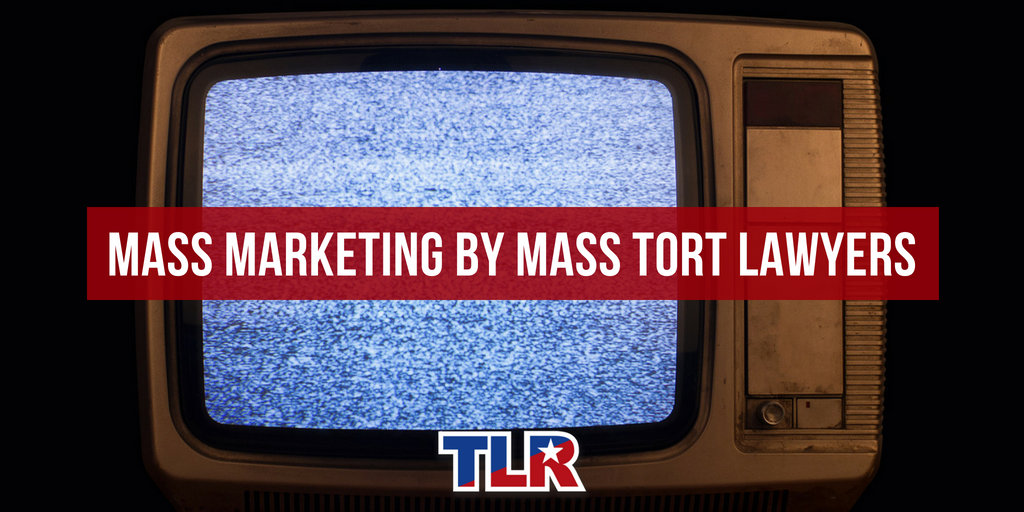
By: Lucy Nashed, TLR Communications Director
“Have you been injured in a car accident?”
“Are you one of the thousands of Americans taking this prescription drug?”
“Has your insurance company unfairly denied or delayed your claim?”
Personal injury trial lawyer advertising is ubiquitous.
They’re not unique to any part of the country. They appear on broadcast television, cable, the websites we visit and now on the mobile apps we use on a daily basis.
I still can name several personal injury trial lawyer slogans and jingles from when I was a kid that remain engrained in my memory today, the result of years of repeated exposure.
Personal injury trial lawyer advertising is not new. The U.S. Supreme Court deemed it a matter of free speech in 1977, opening the door to an estimated $1 billion in lawyer advertising in 2017. But just because it’s legal doesn’t mean it’s good.
At a recent conference of tort reform organizations from across the country, we heard that personal injury trial lawyers have started using digital geofencing—a method of serving ads to mobile phones in a targeted geographic area—to advertise directly to potential clients inside hospital emergency rooms. Talk about taking ambulance chasing to a whole new level!
And according to the Institute for Legal Reform (ILR), personal injury trial lawyer advertising can be bad for your health. ILR studied the dangerous—and sometimes deadly—effects of personal injury trial lawyer advertising related to prescription drugs and medical devices. It seems these ads have frightened some Americans, convincing them to stop taking medically necessary prescription drugs against their doctors’ orders, with sometimes dire consequences to their health.
Here at home, a drive down any major highway reveals countless billboards extolling the array of legal representation at your disposal—the majority of which, of course, comes at no cost to you… unless you win.
When it comes to advertising, Texans are a savvy bunch. In a May 2018 poll of Texas voters conducted by Baselice and Associates, 87 percent of respondents did not believe that the lawyer who advertises on TV would handle their case.
What many Texans may not realize, however, is that the law firm in the ad might not actually be the firm to handle your case at all. Many advertising lawyers are merely client harvesters. They generate clients through advertising and then farm out the actual work to other firms for a share of the fees generated by the cases. Now that doesn’t sit well with Texans.
In the Baselice poll, 82 percent of Texans surveyed believed that an attorney who advertises for your case should be required to clearly state upfront whether he or she will personally handle your case.
Texans depend on attorneys at difficult times to help them seek relief in the courts. They deserve transparency from Texas attorneys, not cheesy advertising gimmicks.
